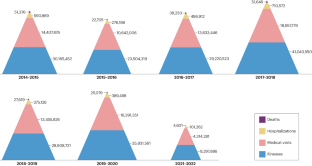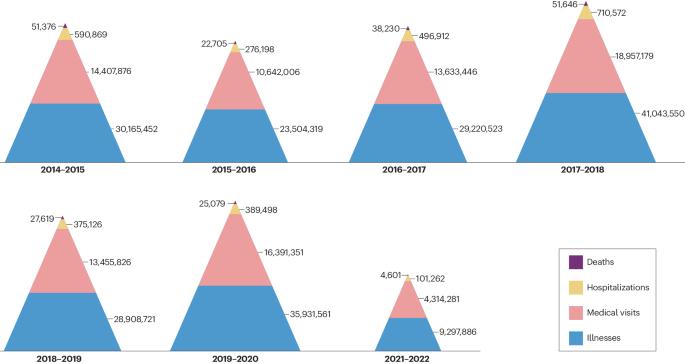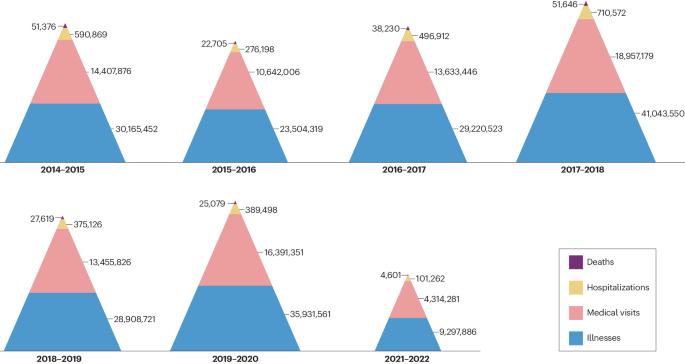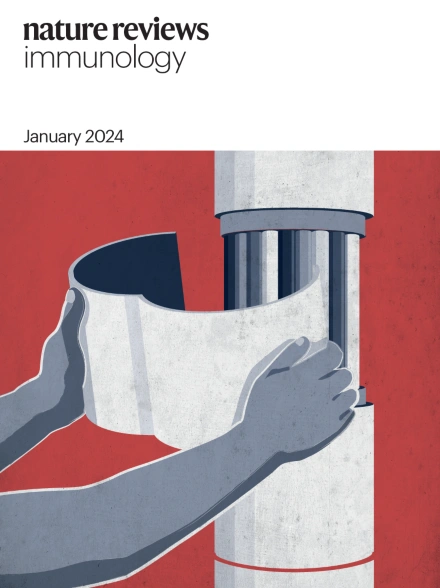Opportunities and challenges for T cell-based influenza vaccines
IF 67.7
1区 医学
Q1 IMMUNOLOGY
引用次数: 0
Abstract
Vaccination remains our main defence against influenza, which causes substantial annual mortality and poses a serious pandemic threat. Influenza virus evades immunity by rapidly changing its surface antigens but, even when the vaccine is well matched to the current circulating virus strains, influenza vaccines are not as effective as many other vaccines. Influenza vaccine development has traditionally focused on the induction of protective antibodies, but there is mounting evidence that T cell responses are also protective against influenza. Thus, future vaccines designed to promote both broad T cell effector functions and antibodies may provide enhanced protection. As we discuss, such vaccines present several challenges that require new strategic and economic considerations. Vaccine-induced T cells relevant to protection may reside in the lungs or lymphoid tissues, requiring more invasive assays to assess the immunogenicity of vaccine candidates. T cell functions may contain and resolve infection rather than completely prevent infection and early illness, requiring vaccine effectiveness to be assessed based on the prevention of severe disease and death rather than symptomatic infection. It can be complex and costly to measure T cell responses and infrequent clinical outcomes, and thus innovations in clinical trial design are needed for economic reasons. Nevertheless, the goal of more effective influenza vaccines justifies renewed and intensive efforts. Compared with many other vaccines, current vaccines against influenza provide only limited protection. Here, the authors describe the challenges and recent attempts at generating T cell-based vaccines. It may be important to combine T cell-based vaccines with antibody-based vaccines to provide long-lasting immunity across influenza virus strains.



基于 T 细胞的流感疫苗的机遇与挑战
疫苗接种仍然是我们抵御流感的主要手段,流感每年造成大量死亡,并构成严重的大流行威胁。流感病毒通过迅速改变其表面抗原来逃避免疫,但即使疫苗与当前流行的病毒株非常匹配,流感疫苗也不如许多其他疫苗有效。流感疫苗的研发历来侧重于诱导保护性抗体,但越来越多的证据表明,T 细胞反应也对流感有保护作用。因此,未来旨在促进广泛的 T 细胞效应功能和抗体的疫苗可能会提供更强的保护。正如我们所讨论的,这类疫苗面临着一些挑战,需要新的战略和经济考量。疫苗诱导的与保护相关的 T 细胞可能存在于肺部或淋巴组织中,因此需要更多侵入性试验来评估候选疫苗的免疫原性。T 细胞功能可能会抑制和化解感染,而不是完全预防感染和早期疾病,这就要求根据预防严重疾病和死亡而不是无症状感染来评估疫苗的有效性。对 T 细胞反应和不常见的临床结果进行测量既复杂又昂贵,因此出于经济原因,需要对临床试验设计进行创新。尽管如此,为了实现更有效的流感疫苗这一目标,我们有理由继续加紧努力。
本文章由计算机程序翻译,如有差异,请以英文原文为准。
求助全文
约1分钟内获得全文
求助全文
来源期刊

Nature Reviews Immunology
医学-免疫学
CiteScore
93.40
自引率
0.40%
发文量
131
审稿时长
6-12 weeks
期刊介绍:
Nature Reviews Immunology is a journal that provides comprehensive coverage of all areas of immunology, including fundamental mechanisms and applied aspects. It has two international standard serial numbers (ISSN): 1474-1733 for print and 1474-1741 for online. In addition to review articles, the journal also features recent developments and new primary papers in the field, as well as reflections on influential people, papers, and events in the development of immunology. The subjects covered by Nature Reviews Immunology include allergy and asthma, autoimmunity, antigen processing and presentation, apoptosis and cell death, chemokines and chemokine receptors, cytokines and cytokine receptors, development and function of cells of the immune system, haematopoiesis, infection and immunity, immunotherapy, innate immunity, mucosal immunology and the microbiota, regulation of the immune response, signalling in the immune system, transplantation, tumour immunology and immunotherapy, and vaccine development.
 求助内容:
求助内容: 应助结果提醒方式:
应助结果提醒方式:


